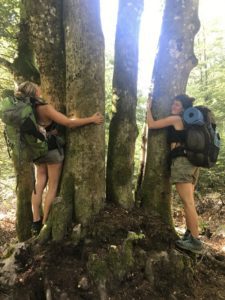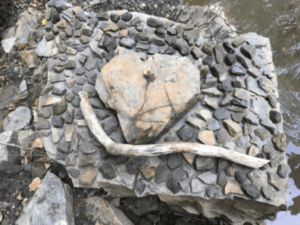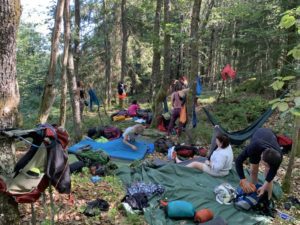Wilderness therapy as mental health treatment: a case study from the UK
Source: Wilderness Foundation UK website
The cost of mental health is rising exponentially across the world, overtaking the cost of heart disease. At the same time, wilderness and biodiversity are declining and we must advocate for their protection through a range of programmes that influence our general behaviours and the decisions of politicians and planners. The Wilderness Foundation UK advocates for the wild by sharing evaluated programmes that demonstrate the impact of wild places, and nature connection, on human mental well-being.

Source: Wilderness Foundation UK website
The Wilderness Foundation UK works with youth experiencing lack of education, employment, drugs and alcohol addictions, domestic violence, trauma, self harm and a range of mental health issues. They suffered with depression, anxiety, anger and violence issues, self harm and potential suicide. Many were in trouble with the police or known to social services.
The Foundation identified that many of their youth had issues relating to trauma in childhood, belonging and identity, and had no connection with wider society that was positive. Many times in their lives they had been rejected and held negative and destructive belief systems and behaviours. They had poor self respect, little respect for others or for nature.
Most had little positive contact with nature and the outdoors, and no interest in wildlife.
Read also the original case study on well-being for people and the planet through wilderness therapy and nature immersion, or another case study from Scotland on health benefits of periurban parks.
Wilderness therapy as a solution
Participants were in need of a structured programme with a strong group process and individual support.
Beneficiaries of wilderness immersions learn to care for the natural world, implementing positive behaviours towards nature such as Leave No Trace ethics, conservation volunteering and advocacy for the protection of wild places and wildlife.
The Wilderness Foundation offers a programme of a minimum of six months, including:

Source: Wilderness Foundation UK website.
- two wilderness therapy trails,
- monthly group work,
- social events,
- volunteering,
- training,
- and weekly mentoring.
All the steps of the programme are researched and the Foundation also provides support for the families and holds community celebrations.
Nature is the main ingredient of the programme with our facilitation and feedback session backing up their experience and embedding new belief systems. Outdoor therapy is key.
The programme established a number of partnerships that are crucial to take it forward. The Foundation works closely with the University of Essex to evaluate the work. A partner guiding company provides the health and safety expertise for the trails and adventure therapy work. Finally, they work with social services, the police, schools, and other charities to support their young clients.
Improved mental health

Source: Wilderness Foundation UK website
The project has a high outcome of improved mental health – such as mood, resilience, self efficacy, hopefulness linked to connection to nature. This is consistent through the years of the programme.
On average, 85% of graduates go into further education or employment. Many of the young participants have learned tools and techniques to help themselves into the future when things get hard and report that they still use these sometimes ten years after completing the course.
Nature is the greatest teacher of all and we are simply just working alongside her.
Jo Roberts, Director of the Wilderness Foundation admits that it is sometimes very hard to engage the wider family to match the changes of the young people. “We find that those on drugs or dealing drugs are the hardest to engage for the whole programme. Sometimes building a group ethic is hard before a trail brings everyone together,” explains Ms Roberts.
But most importantly, she remarks that, “by offering kindness and respect, it usually comes back to you ten fold.”
